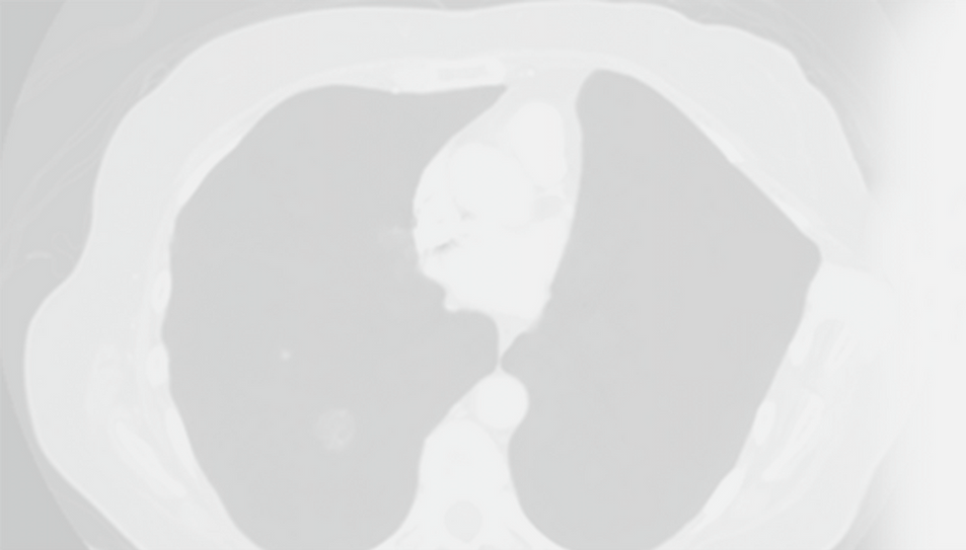ClearRead CT
Clinical A.I.
Provides a vessel suppressed CT series while automatically detecting and measuring critical properties of solid, sub-solid and ground glass nodules.

"ClearRead CT aided radiologists perform nodule search 26% faster and detect 29% of previously missed actionable nodules."
Comprised of two powerful tools, Vessel Suppress and Detect

Deep learning enables the vessel suppression technology to assist both machine and humans in the detection and characterization of all primary nodule types.
Powered by acquisition normalization technology
Provides an enterprise ready solution for the entire healthcare network. The technology seamlessly processes CT scans from a wide range of manufacturers and acquisition protocols and quickly installs into the clinical environment without the need for new hardware or customized tuning to specific devices or protocols.
The first FDA cleared device to support concurrent reading
Allows for faster reading with proven superior automatic nodule detection performance for all primary nodule types, including: solid, sub-solid and ground glass nodules.
ClearRead CT | Vessel Suppress
Powered by Machine Learning and Advanced Modeling
Provides a new view for the radiologist. Through the suppression of vascular structures, the radiologist is able to focus on nodular structures rather than distracting vascular structures. The vessel suppression algorithm works with contrast and non-contrast scans, and seamlessly operates on slices with section thickness up to 5mm.
ClearRead CT | Detect
Making Early Detection Easier
Powered by Vessel Suppress, ClearRead CT | Detect is able to quickly detect and characterize solid, part-solid and ground glass nodules. Accurate characterization of detected regions through precise segmentation. ClearRead CT reports are generated for each case providing a summary of findings of disease and infections in the lungs.
ClearRead CT | Compare
Precise Nodule Tracking for Differential Measurements


Utilizing ClearRead CT | Detect, ClearRead CT | Compare tracks nodules and provides precise nodule volumetric changes over time for solid, part-solid, and ground glass nodules.

